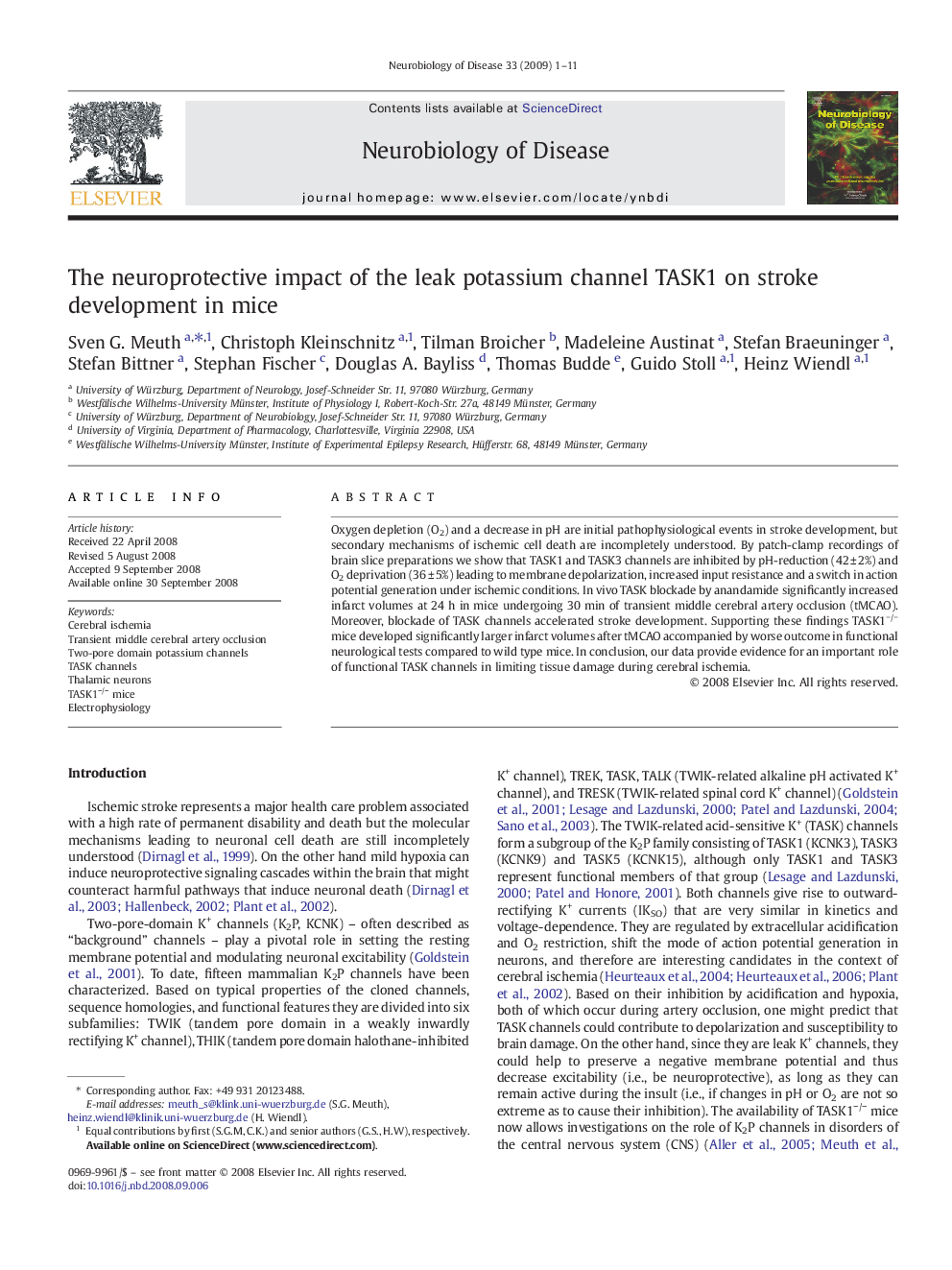| Article ID | Journal | Published Year | Pages | File Type |
|---|---|---|---|---|
| 3070294 | Neurobiology of Disease | 2009 | 11 Pages |
Oxygen depletion (O2) and a decrease in pH are initial pathophysiological events in stroke development, but secondary mechanisms of ischemic cell death are incompletely understood. By patch-clamp recordings of brain slice preparations we show that TASK1 and TASK3 channels are inhibited by pH-reduction (42 ± 2%) and O2 deprivation (36 ± 5%) leading to membrane depolarization, increased input resistance and a switch in action potential generation under ischemic conditions. In vivo TASK blockade by anandamide significantly increased infarct volumes at 24 h in mice undergoing 30 min of transient middle cerebral artery occlusion (tMCAO). Moreover, blockade of TASK channels accelerated stroke development. Supporting these findings TASK1−/− mice developed significantly larger infarct volumes after tMCAO accompanied by worse outcome in functional neurological tests compared to wild type mice. In conclusion, our data provide evidence for an important role of functional TASK channels in limiting tissue damage during cerebral ischemia.
